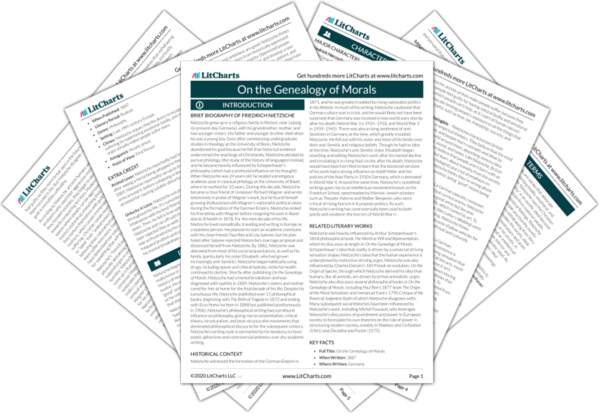Ascetic priest Quotes in On the Genealogy of Morals
What is the meaning of ascetic ideals?

Unlock explanations and citation info for this and every other On the Genealogy of Morals quote.
Plus so much more...
Get LitCharts A+‘I suffer: someone is to blame’—all sick sheep think this. But his shepherd, the ascetic priest, says to him, ‘Quite so, my sheep, it must be the fault of someone but you yourself are that someone, you alone are to blame—you yourself are to blame for yourself;’ that is bold enough, false enough, but one thing is at least attained thereby, as I have said: resentment is—diverted.
The hypnotic sensation of nothingness, the peace of deepest sleep, anaesthesia in short—this is regarded by the sufferers and the absolutely depressed as their supreme good[.]

Ascetic priest Quotes in On the Genealogy of Morals
What is the meaning of ascetic ideals?

Unlock explanations and citation info for this and every other On the Genealogy of Morals quote.
Plus so much more...
Get LitCharts A+‘I suffer: someone is to blame’—all sick sheep think this. But his shepherd, the ascetic priest, says to him, ‘Quite so, my sheep, it must be the fault of someone but you yourself are that someone, you alone are to blame—you yourself are to blame for yourself;’ that is bold enough, false enough, but one thing is at least attained thereby, as I have said: resentment is—diverted.
The hypnotic sensation of nothingness, the peace of deepest sleep, anaesthesia in short—this is regarded by the sufferers and the absolutely depressed as their supreme good[.]











